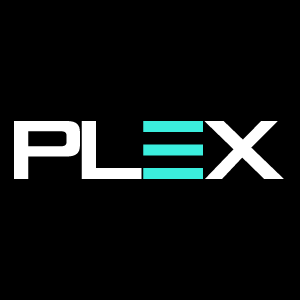

Now Available!
Get your copy of the 7th Annual State of Smart Manufacturing and hear from 300+ manufacturers in this new survey report!
Subscribe to Our Blog
For a monthly digest of expert insights, data points, and tips like the ones in this article.
Automotive Demand Planning – Staying Agile in Today’s Environment
Supply Chain Management, Fourth Industrial Revolution, Industry 4.0As an automobile is viewed as a big-ticket item—seen as part investment, part necessity for daily life, and part consumer statement, the automotive industry must cope with one of the most complex supply chains in the world to meet demand. And because of this, demand planning is crucial for its existence and growth. But the auto industry is also evolving quickly and finding itself in need of a high degree of innovation and agility to remain competitive. This evolution is due to advances in technology, shifting business models related to the growth of the internet, and unexpected disruptions such as COVID-19.
Transformational Times
It would be difficult to identify another industry whose transformation is happening as rapidly as that of the auto sector. Each of these transformative events is independent of one another, creating a critical need for not only sound supply chains but also supply chains with extraordinary agility to sense demand and respond accordingly. That’s where more robust demand planning plays its part.
These transformations include:
- Electric Vehicles: It’s estimated that between 2019 and 2027, the electric vehicle (EV) market could undergo a compound annual growth rate (CAGR) of 20%, with a global market value of $803USD billion. This has the potential to create not only retooling concerns to shift to EV production but also introduces an on-scale supply chain with thousands of new components. This trend in new supply chain components will increase even further as autonomous vehicles and structural batteries evolve.
- Onboard Software Systems: With more and more features available for onboard diagnostics, entertainment, and functionality, vehicles are no longer just mechanical devices to get you from A to B. Supply chains for ruggedized circuit boards and specially designed systems add yet another component to supply chain management.
- Mass Customization: Automakers have been shifting their business model for years to address the availability of mass customization thanks to the internet. This trend had already added new complexity and forced a greater degree of agility to manage unique combinations of parts and features.
- COVID-19: The auto industry was severely impacted by the global pandemic over the past year. This massive disruption caused sales to tank and generates ripples throughout a supply chain and across the globe. In many ways, COVID-19 forced even more consumers onto the internet in search of their next vehicle, accelerating mass customization further.
Strategic Response
The automotive industry’s response to these and other challenges has been strategic. And because of the depth and complexity of the supply chain, its approach is becoming more and more data-driven.
This reaction is in part to focus more on the consumer and deliver precisely the products desired to remain competitive. But the push to use data and analysis is also reflective of the fact that the industry realizes its agility must be driven by demand planning software capable of understanding, analyzing, and contextualizing data for better decision-making.
The areas where data-driven marketing and demand planning are being used strategically for increased agility include:
- Production Idling: By leveraging data with demand sensing and trend analysis, shifts in demand may lead to production idling. As a temporary measure, this helps automakers balance inventories in a more agile way for both revised sales as well as inventory rundowns for new models.
- Supply Chain Balancing: From tariffs to pandemics, a host of industries sense that major disruptions may be more likely than not. To address this, many companies use emergency logistics to manage sudden disruptions and rebalance the supply chain. This means more than “having a plan.” When linked via demand planning and supply planning software, complex “what-if” scenarios can be run to help emergency logistics professionals respond with the most agile response to the problem.
- Linked Marketing Insights: An overwhelming number of consumer goods are sold “as-is,” meaning there is little to no need for add-ons. But with the incredible number of add-on features and functions available on just one vehicle model, market insights linked to demand and supply planning software can inform forecasters and deliver a level of accuracy not possible through human-based planning.
Market Forecasting
When agility can make or break your company, the Market Forecast Manager software from Plex DemandCaster can make the difference. This innovative software goes beyond demand planning and supply planning to connect automotive marketing insights with customer demands. The result is significantly improved forecasts that leverage data-driven insights such as IHS Markit’s Light Vehicle Forecast to deliver forecasts that tie all the pieces together.
By using the Market Forecast Manager, you can develop long-term customer strategies and engage new business opportunities with superior portfolio planning. This software contextualizes information with automated data to do everything from avoiding stock-outs or overstock to planning product end-of-life.


